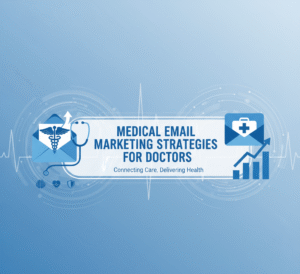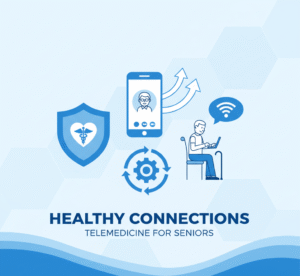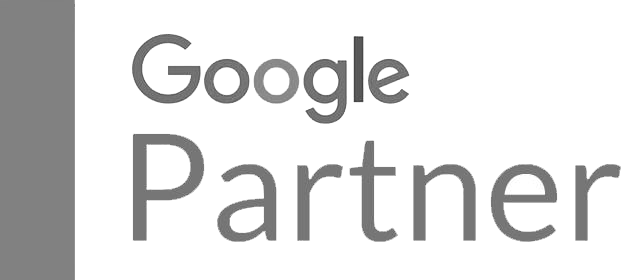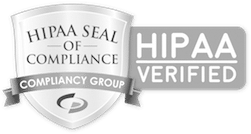“Get more patients! Learn how medical weight loss SEO boosts traffic and inquiries for weight loss clinics with optimized pages, patient stories, and local search strategies.”
In the dynamic world of healthcare, weight loss clinics face a unique challenge: connecting with individuals ready to embark on a transformative journey. It’s not just about offering effective programs; it’s about making sure those in need can easily find you. This is where a robust medical weight loss SEO strategy becomes indispensable.
Think of it this way: when someone decides to address their weight, their first step is often a search engine. They type in terms like “weight loss clinic near me,” “semaglutide local search,” or “non-surgical weight loss marketing.” If your clinic isn’t appearing prominently in those results, you’re missing out on valuable opportunities to help.
This article explores how weight loss clinics can harness the power of search engine optimization to boost organic traffic, generate patient inquiries, and ultimately, grow their practice. We will discuss optimizing your treatment pages, showcasing compelling patient success stories, and mastering local search strategies. Our insights draw from industry best practices, including the expertise of leaders in medical marketing.
Why SEO is the Cornerstone of Weight Loss Clinic Marketing
Traditional advertising methods have their place, but inbound marketing, fueled by strong SEO, has become the most effective way for healthcare providers to attract and engage potential patients. It works by creating valuable content and experiences that naturally draw people to your services when they are actively seeking solutions.
Building trust and establishing authority are paramount for weight loss clinics. People want to feel confident in the expertise of their chosen provider. Your clinic becomes a trusted resource by consistently providing informative content, like detailed explanations of treatments, answers to common questions about weight loss, and inspiring patient journeys. This educational approach fills knowledge gaps, empowers individuals to make informed decisions, and fosters loyalty long before they even enter your doors.
Effective weight loss clinic SEO keywords and comprehensive strategies are more than just appearing in search results. They are about positioning your clinic as the go-to expert in a crowded market. This ensures your online presence is visible and persuasive, converting casual browsers into committed patients.
Crafting Your Digital Foundation: Website Optimization for Conversions
Your clinic’s website serves as its primary digital storefront. It must do more than simply exist online; it must be a powerful, user-friendly tool for visibility and conversion. This requires a strategic approach to design, content, and technical elements.
First, prioritize user experience. A cluttered, slow, or difficult-to-navigate website frustrates visitors, causing them to leave quickly. Ensure clean, intuitive menus, clear calls-to-action (CTAs) like “Book a Free Consultation” or “Learn About Our Programs,” and a logical flow of information. Potential patients should easily find what they are looking for, whether it’s details about a specific weight loss program or information about your medical team.
Next, implement robust SEO strategies. This begins with thorough medical weight loss SEO keyword research to understand how potential patients are searching for services like yours. Identify terms with high search volume and moderate competition. For example, individuals might search for “semaglutide for weight loss,” “gastric sleeve alternatives,” or “medically supervised diet programs.” Integrate these keywords into your website’s content, headings, and meta descriptions.
Dynamic imagery and video content significantly enhance your site’s appeal. Before-and-after photos, with proper patient consent, can powerfully convey the transformative results your clinic achieves. Video testimonials from satisfied patients add a personal touch and build credibility, showcasing the human impact of your programs. These visual elements resonate deeply with visitors, making your clinic’s value proposition clear and compelling.
Finally, pay attention to technical SEO. This involves optimizing your website’s backend to meet Google’s performance and usability standards. A fast-loading site is crucial for both user experience and search engine rankings. Ensure your site loads quickly and passes Google’s Core Web Vitals. Implement breadcrumbs for easy navigation and optimize internal links to help users and search engines explore your site efficiently. Claim and monitor your Google Search Console account to identify any coverage errors or indexing issues that could hinder your rankings. A technically sound website provides a strong foundation for all your SEO efforts.
Optimizing Treatment Pages: Specificity Drives Success
Generic information rarely captivates. To truly attract and convert potential patients, your website needs dedicated, in-depth pages for each treatment and service your clinic offers. This is where specificity shines, helping you rank for highly targeted searches and address patient needs directly.
Consider your range of services: medical weight loss programs, semaglutide treatments, dietary counseling, bariatric pre- and post-operative support, or specialized programs for conditions like obesity. Each of these should have its dedicated page. On these pages, provide comprehensive information:
- What the treatment involves: Explain the process step-by-step.
- Benefits: Clearly articulate how this treatment helps patients achieve their weight loss goals and improve their health.
- Eligibility criteria: Help visitors quickly determine if they are candidates.
- Expected outcomes: Set realistic expectations.
- FAQs specific to that treatment: Address common concerns upfront.
For example, a page dedicated to “Semaglutide for Weight Loss” should detail what semaglutide is, how it works, potential side effects, success rates, and what a typical patient journey with this medication looks like at your clinic. Incorporate specific keywords like “semaglutide local search” or “semaglutide near me” within the content, making it highly relevant to local inquiries.
Furthermore, use compelling visuals, such as infographics explaining the treatment process or short videos featuring your medical staff discussing the treatment. Patient testimonials relevant to that specific treatment also add immense value and social proof.
By optimizing individual treatment pages with specific, detailed, and keyword-rich content, you not only improve your search engine rankings for highly targeted queries but also empower potential patients with the information they need to choose your clinic confidently. This targeted approach demonstrates your expertise and commitment to specialized care, building trust and driving inquiries from individuals ready to take the next step.
The Power of Patient Narratives: Patient Success Story SEO
Stories are far more impactful than statistics alone in the weight loss journey. Patient success stories are powerful testimonials, offering real-world proof of your clinic’s effectiveness and fostering a deep connection with potential patients. Incorporating these narratives strategically into your SEO efforts can significantly enhance your clinic’s visibility and credibility.
When seeking weight loss solutions, individuals often seek inspiration and reassurance. They want to see that others have achieved their goals and that your clinic can guide them to similar outcomes. You address this crucial need by publishing detailed patient success story SEO content.
Here’s how to do it effectively:
- Dedicated Success Story Section: Create a prominent section on your website, perhaps titled “Our Patients’ Journeys” or “Real Transformations.”
- Detailed Narratives: Go beyond a simple testimonial. Each success story should be a mini-case study. Include:
- The patient’s initial struggle: What challenges did they face before coming to your clinic?
- Their journey with your clinic: What program did they follow? What support did they receive?
- Their achievements: What weight did they lose? How has their health improved? How has their life changed?
- Before-and-after photos (with consent): Visuals are compelling
- A quote or direct testimonial: A personal statement adds authenticity.
- Keyword Integration: While focusing on the narrative, naturally weave in medical weight loss blog topics and keywords relevant to the patient’s journey or the treatments they received. For example, if a patient succeeds in a non-surgical program, ensure that the terms “non-surgical weight loss marketing” are present. If they used a specific medication, include that.
- Video Testimonials: Short video interviews with patients add an extra layer of authenticity and emotional impact. These can be embedded on your success story pages and shared across social media platforms.
- Shareability: Make it easy for visitors to share these stories on social media. Others’ achievements inspire people, a nd you may share content that resonates with them, extending your reach organically.
These stories not only provide social proof but also serve as valuable content for SEO. They are rich in keywords and phrases that real people use when seeking solutions. Google recognizes authoritative and helpful content, and genuine patient experiences fit this criterion perfectly. They demonstrate your clinic’s effectiveness and compassion, helping you attract more qualified leads and convert them into new patients.
Mastering Local Search: Attracting Patients in Your Area
Many potential patients for weight loss clinics will be located within your immediate geographic area. This makes local health coach SEO and general local search optimization critical. When someone types “diet clinic near me” or “obesity clinic SEO terms” into a search engine, you want to be at the top of their local results.
Here’s how to dominate local search:
Google Business Profile Optimization
Your Google Business Profile (GBP) is the most crucial local SEO tool. It’s a free listing in Google Search, Google Maps, and the local pack (the map results with three businesses that appear at the top of search results).
- Claim and Verify: Ensure your weight-loss program’s Google My Business profile is claimed and verified. This gives you control over the information.
- Complete All Sections: Fill out every section of your GBP thoroughly and accurately.
- Name, Address, Phone Number (NAP): Consistency across all online listings is vital.
- Business Hours: Keep them updated.
- Categories: Choose the most specific categories that describe your services (e.g., “Weight Loss Service,” “Medical Clinic,” “Dietitian”).
- Services: List all the weight loss programs and treatments you offer.
- Photos and Videos: Upload high-quality images of your clinic and staff, and perhaps even before-and-after photos (with consent). This will make your listing more appealing.
- Post Updates Regularly: Use the “Posts” feature to share updates, special offers, new services, or blog posts. This keeps your profile active and engaging.
- Collect and Respond to Reviews: Encourage satisfied patients to leave reviews. Respond to all reviews, both positive and negative, in a professional and empathetic manner. This shows you value patient feedback and are committed to excellent service. Positive reviews are a strong ranking factor in local search.
- Use Local Keywords: In your GBP description and posts, naturally incorporate local keywords like “medical weight loss [city name],” “semaglutide [neighborhood],” or “diet clinic [zip code].”
Localized Content Strategy
Beyond your GBP, your website content should also be optimized for local searches.
- Location-Specific Pages: If you have multiple clinic locations, create a dedicated page for each. These pages should include specific details about that location, testimonials, and landmarks to help Google understand their geographic relevance.
- “Near Me” Content: Create blog posts or FAQs that answer “near me”-type questions. For example, a post titled “Finding the Best Weight Loss Doctor in [Your City]” or “Semaglutide Near Me: What to Look For.”
- Local Landing Pages: For specific campaigns or services, create landing pages optimized for local keywords.
- Geographically Targeted Keywords: Throughout your website, integrate terms like “weight loss clinic in [City/State],” “bariatric doctor [County],” or “diet program [Neighborhood].”
Citations and Local Link Building
- Online Directories: List your clinic in relevant online directories like Yelp, Healthgrades, Zocdoc, and local business directories. Ensure your NAP information is consistent across all listings.
- Local Backlinks: Seek opportunities to earn backlinks from other reputable local businesses, community organizations, or local news websites. This signals to Google that your clinic is a legitimate and essential part of the local community.
By diligently implementing these local SEO strategies, your weight loss clinic will become highly visible to individuals searching for services in their immediate vicinity. This targeted approach ensures that the people most likely to become your patients can easily find and connect with you.
Content that Connects: Engaging Your Audience and Driving Leads
Beyond technical SEO and local optimization, the quality and relevance of your content are paramount. Creating valuable, informative, and engaging content is how your clinic builds authority, answers patient questions, and nurtures leads.
Developing a Robust Content Strategy
Your content strategy should address the entire patient journey, from initial awareness to decision-making.
- Blog Posts: A clinic blog is a powerful tool. Use it to cover a wide range of medical weight loss blog topics, including:
- Educational Content: Explain complex medical concepts in an easy-to-understand way (e.g., “Understanding the Role of GLP-1 Agonists in Weight Management”).
- Nutritional Advice: Offer practical tips for healthy eating and meal planning.
- Exercise Guidance: Provide safe and effective exercise recommendations for different fitness levels.
- Lifestyle Changes: Discuss stress management, sleep hygiene, and other weight-related factors.
- Debunking Myths: Address common misconceptions about weight loss.
- Disease Prevention: Explain how weight loss can prevent or manage diabetes, heart disease, or joint pain.
- Success Stories: As discussed, feature inspiring patient journeys.
- FAQs: Create comprehensive FAQ sections on your website and within individual treatment pages. This directly answers common questions and helps capture long-tail keywords, such as “What are the side effects of semaglutide?” or “How much does a medical weight loss program cost?”
- Service Pages: Dedicate specific pages to each service. These pages need more than just a brief description; they should be comprehensive guides that detail the process, benefits, and typical patient experience for that service.
- Comparison Guides: Objective comparisons of different weight loss approaches (e.g., “Surgical vs. Non-Surgical Weight Loss Options”) establish your clinic as an unbiased, educational resource.
- Downloadable Guides/Ebooks: Create longer-form content like “A Beginner’s Guide to Medical Weight Loss” or “Understanding Your Options for Bariatric Care.” These can serve as lead magnets, requiring an email address for download, thus building your email list.
Tailoring Content for Different Keywords
Remember to strategically incorporate your keywords naturally throughout your content.
- Primary Keyword: Ensure “medical weight loss SEO” is used appropriately within your general content, especially on your homepage and key service pages.
- Secondary Keywords: Sprinkle in weight loss clinic SEO keywords like “bariatric doctor content,” “semaglutide local search,” “diet clinic inbound marketing,” and “obesity clinic SEO terms” where relevant. For instance, a blog post about post-bariatric surgery nutrition would be ideal for “bariatric doctor content.”
- Long-Tail Keywords are longer, more specific phrases that people type into search engines (e.g., “best non-surgical weight loss program for women over 50”). Your FAQs and detailed blog posts are perfect for targeting these.
Content Quality and Readability
- Authoritative and Informative: Your content must be accurate, up-to-date, and medically sound. Cite credible sources when necessary.
- Human-Centric: Avoid jargon. Write in a clear, conversational, and empathetic tone. Remember, you are talking to individuals who may be feeling vulnerable or overwhelmed.
- Readability: Use short sentences and paragraphs. Break up text with headings, subheadings, bullet points, and images. This improves readability and keeps visitors engaged. Utilize transition words and phrases to ensure a smooth flow between ideas and sections. Avoid passive voice to make your writing direct and impactful.
- Call-to-Actions (CTAs): Every piece of content should have a clear next step. Whether it’s “Schedule a Consultation,” “Download Our Guide,” or “Learn More About [Specific Program],” guide your readers toward conversion.
By investing in a robust, patient-centric content strategy, your clinic will rank higher in search results and build a strong reputation as a trusted authority, attracting more qualified leads eager to start their weight loss journey with you.
Lead Generation Solutions: Invigo Media’s Approach to Medical Weight Loss SEO
Attracting potential patients to your website is the first step; converting them into inquiries and actual patients is the ultimate goal. This requires a strategic lead generation framework, and specialized agencies like Invigo Media bring considerable experience in SEO for medically supervised weight loss.
Invigo Media, as a digital marketing agency focusing on healthcare, understands the nuances of the medical field. Their approach to SEO for weight loss clinics is built on generating consistent patient consultations while managing costs effectively. They recognize that a successful strategy integrates multiple channels, including SEO, paid search (PPC), and social media.
Their expertise often covers crucial elements of lead generation:
- Comprehensive SEO Strategies: Invigo Media ensures your clinic’s website is easily discoverable by patients actively searching for weight loss solutions. This includes a strong emphasis on technical SEO, ensuring your site is built to meet Google’s performance and usability standards, loads quickly, and is easily crawled and indexed.
- Targeted Keyword Research: They conduct in-depth keyword research, identifying high-value terms that potential patients use, including specific treatments like “semaglutide near me” or general inquiries like “medical weight loss clinic.” This allows for creating content and optimizing pages that directly address user intent.
- Local Search Optimization: A significant focus is local SEO, optimizing Google Business Profiles with accurate information and images, and actively managing patient reviews. They work to ensure clinics appear prominently in local search results for terms like “weight loss clinic in [city].”
- Content Development: Invigo Media assists clinics in developing compelling, authoritative content, including educational articles, detailed service pages, and patient success stories. This content is designed to rank well, build trust, and educate potential patients.
- Conversion Optimization: Beyond driving traffic, the focus is converting visitors into leads. This involves optimizing website design for conversions, ensuring clear calls-to-action, and streamlining the patient inquiry process. They understand that a well-designed patient acquisition system provides a steady stream of new clients. This involves offering high-quality lead generation ideas like complimentary consultations or community workshops.
- Tracking and Analysis: A key component of their service is continuously tracking and optimizing campaigns. By analyzing data, they can refine strategies to improve effectiveness and ensure a strong return on investment. This includes monitoring search engine rankings, website traffic, conversion rates, and the overall patient acquisition funnel.
Invigo Media’s experience in SEO for medically supervised weight loss means they understand the patient journey from discovery to consultation. They aim to connect clinics with individuals seeking professional weight management solutions, making them valuable partners in your lead generation efforts. Their approach is about creating tailored campaigns that resonate with the target audience’s interests and needs, building a strong online presence, and establishing credibility for your clinic.
By partnering with experts who understand the medical and marketing landscapes, weight loss clinics can streamline their lead generation processes, attracting more qualified inquiries and converting them into loyal patients. This strategic collaboration empowers clinics to navigate the complexities of digital marketing, focusing on what they do best: helping patients achieve their weight loss goals.
The Journey Ahead: Sustained Growth Through Ongoing SEO
Achieving top search rankings and a steady stream of leads is not a one-time event; it’s an ongoing process. SEO is dynamic, with search engine algorithms constantly evolving and competition increasing. For weight loss clinics, sustained growth comes from a commitment to continuous optimization and adaptation.
Monitoring and Analysis
Regular monitoring of your SEO performance is crucial. Track key metrics such as:
- Organic Traffic: How many visitors from search engines are coming to your site?
- Keyword Rankings: Where do your target keywords rank in search results?
- Conversion Rates: How many website visitors complete a desired action (e.g., filling out a form, making a call)?
- Bounce Rate: How many visitors leave your site after viewing only one page? A high bounce rate can indicate poor content or user experience.
- Page Speed and Core Web Vitals: Are technical issues hindering performance?
- Google Business Profile Insights: Monitor views, searches, and actions taken on your GBP listing.
Tools like Google Analytics, Google Search Console, and various SEO platforms provide the data you need to assess the effectiveness of your strategies. Analyze this data regularly to identify what’s working, what isn’t, and where opportunities for improvement exist.
Adapting to Algorithm Changes
Search engines like Google frequently update their algorithms to provide users with the most relevant and high-quality results. Staying informed about these changes is essential, but more importantly, focus on consistently providing value to your audience. Websites that prioritize user experience, deliver authoritative content, and maintain technical soundness are generally resilient to algorithm shifts.
Continuous Content Creation
The digital landscape thrives on fresh, relevant content. Continue to produce valuable blog posts, update existing pages with new information, and expand your FAQ sections. As new weight loss treatments emerge (e.g., new medications, non-surgical procedures) or new research becomes available, ensure your content reflects these developments. This keeps your website a vibrant and current resource.
Earning Quality Backlinks
Backlinks from reputable, relevant websites remain a significant ranking factor. Focus on earning high-quality backlinks through:
- Creating exceptional content: Content that other healthcare professionals or authoritative health websites naturally want to link to.
- Guest posting: Contributing articles to other respected health-related blogs or publications.
- Community involvement: Participating in local health initiatives that may lead to mentions or links from local organizations.
- Partnerships: Collaborating with other non-competing health providers in your area.
Engaging with Patients Beyond the Website
SEO efforts shouldn’t exist in a vacuum. Integrate your digital marketing strategies with patient engagement activities.
- Social Media: Actively engage with your audience on platforms like Instagram, Facebook, and TikTok. Share snippets of your blog posts, short informational videos, and patient success stories. Respond to comments and messages promptly. This helps build community and drives traffic back to your website.
- Email Marketing: Cultivate an email list of interested individuals. Send newsletters with health tips, clinic updates, special offers, and links to your latest blog posts. Personalized email campaigns nurture leads and remind them to book appointments.
- Patient Referrals: Encourage satisfied patients to refer friends and family. A strong online presence complements word-of-mouth referrals, amplifying your reach.
By embracing SEO as an ongoing journey rather than a destination, weight loss clinics can ensure consistent inbound leads, foster lasting patient relationships, and achieve sustainable growth in a competitive and evolving healthcare industry. Your commitment to digital visibility is an investment in your clinic’s future, allowing you to reach and help more individuals achieve their health and weight loss aspirations.
FAQs About SEO for Weight Loss Clinics
What is medical weight loss SEO, and why is it essential for my clinic?
Medical weight loss SEO refers to optimizing your clinic’s online presence to rank higher in search engine results for terms related to medical weight loss and associated services. It’s important because most potential patients use search engines to find healthcare providers. Effective SEO drives organic traffic to your website, increasing visibility, attracting qualified leads, and boosting patient inquiries and appointments. It positions your clinic as a trusted authority.
How long does it take to see results from SEO efforts?
SEO is a long-term strategy, not a quick fix. While you might see some initial improvements in a few weeks, significant results, especially for competitive keywords, typically take 4-6 months, or even longer (6-12 months). Consistency and patience are key, as search engines need time to crawl, index, and rank your content based on its quality and relevance.
What are the most important keywords for a weight loss clinic?
Key keywords include primary terms like “medical weight loss near me,” “weight loss clinic [city],” and “best diet program.” Secondary keywords are more specific, such as “semaglutide for weight loss,” “non-surgical weight loss options,” “bariatric doctor consultation,” “local health coach,” and “obesity clinic services.” Don’t forget long-tail keywords that capture specific patient questions, like “how to lose weight with PCOS medical help” or “cost of medically supervised diet programs.”
How can local SEO help my weight loss clinic?
Local SEO is crucial for clinics because most patients search for services in their immediate area. Optimizing your Google Business Profile with accurate information, photos, and patient reviews, creating location-specific website content, and building local citations helps your clinic appear prominently in “near me” searches and Google Maps results. This ensures that individuals close to your clinic can easily find you when needed.
Is content marketing different from SEO?
Content marketing and SEO are distinct but highly interdependent. Content marketing focuses on creating valuable, relevant, consistent content to attract and retain a clearly defined audience. SEO is optimizing that content (and your website) to rank higher in search engine results. You need great content for SEO to work, and SEO helps your great content get discovered. They work hand-in-hand to drive traffic and leads.
Should my clinic publish patient success stories online?
Absolutely. Patient success stories are compelling for patient success story SEO. They provide social proof, build trust, and inspire potential patients. You show real-world results by detailing a patient’s journey, challenges, and successful outcomes. These stories are also rich in keywords that potential patients might use in their searches, enhancing your visibility and demonstrating your clinic’s effectiveness. Always obtain explicit patient consent before sharing personal details or photos.
What role does Google My Business play in weight loss clinic marketing?
Google My Business (now generally called Google Business Profile) is a cornerstone of local SEO for weight loss clinics. It’s a free listing that controls your business’s appearance on Google Search and Maps. An optimized GBP allows patients to easily find your address, phone number, hours, website, and read reviews. It significantly impacts your local search rankings and is a direct point of contact for potential patients looking for “weight-loss program Google My Business” listings or nearby clinics.
What are some good medical weight loss blog topics?
Effective blog topics include: “Understanding Semaglutide: Is It Right for Your Weight Loss Journey?”, “The Benefits of Medically Supervised Weight Loss vs. Fad Diets,” “Nutrition Strategies for Sustainable Weight Loss,” “Addressing Emotional Eating: A Medical Approach,” “How to Choose the Right Weight Loss Program for You,” “Managing Weight Loss Plateaus,” and “Success Stories: [Patient Name]’s Journey to Health.” Always focus on providing valuable, informative, and patient-centric content.
How can I avoid sounding like AI in my content?
To make your content sound human and avoid common AI phrasing, focus on:
- Authenticity: Share real-life examples, anecdotes, and patient stories.
- Vary Sentence Structure: Mix short, direct sentences with slightly longer ones for natural flow.
- Use Transition Words: To connect ideas smoothly, employ words like “however,” “therefore,” “in addition,” “consequently,” and ” and yet.”
- Direct Language: I prefer the active voice (“We help patients lose weight”) over the passive voice (” Patients lose weight”).
- Avoid Overly Formal or Repetitive Phrases: Avoid generic business jargon or overly synthesized phrases. Write as if you are speaking directly to a patient.
- Show Empathy: Use language that acknowledges the patient’s challenges and aspirations.
Should I include information about specific medications like Semaglutide?
Including detailed, medically accurate information about specific medications like semaglutide is crucial, especially for targeting semaglutide local search queries. Create dedicated pages or comprehensive blog posts that explain what the medication is, how it works, its benefits, potential side effects, and how it’s integrated into your clinic’s supervised weight loss programs. This positions your clinic as knowledgeable and provides valuable information to patients seeking these treatments.













